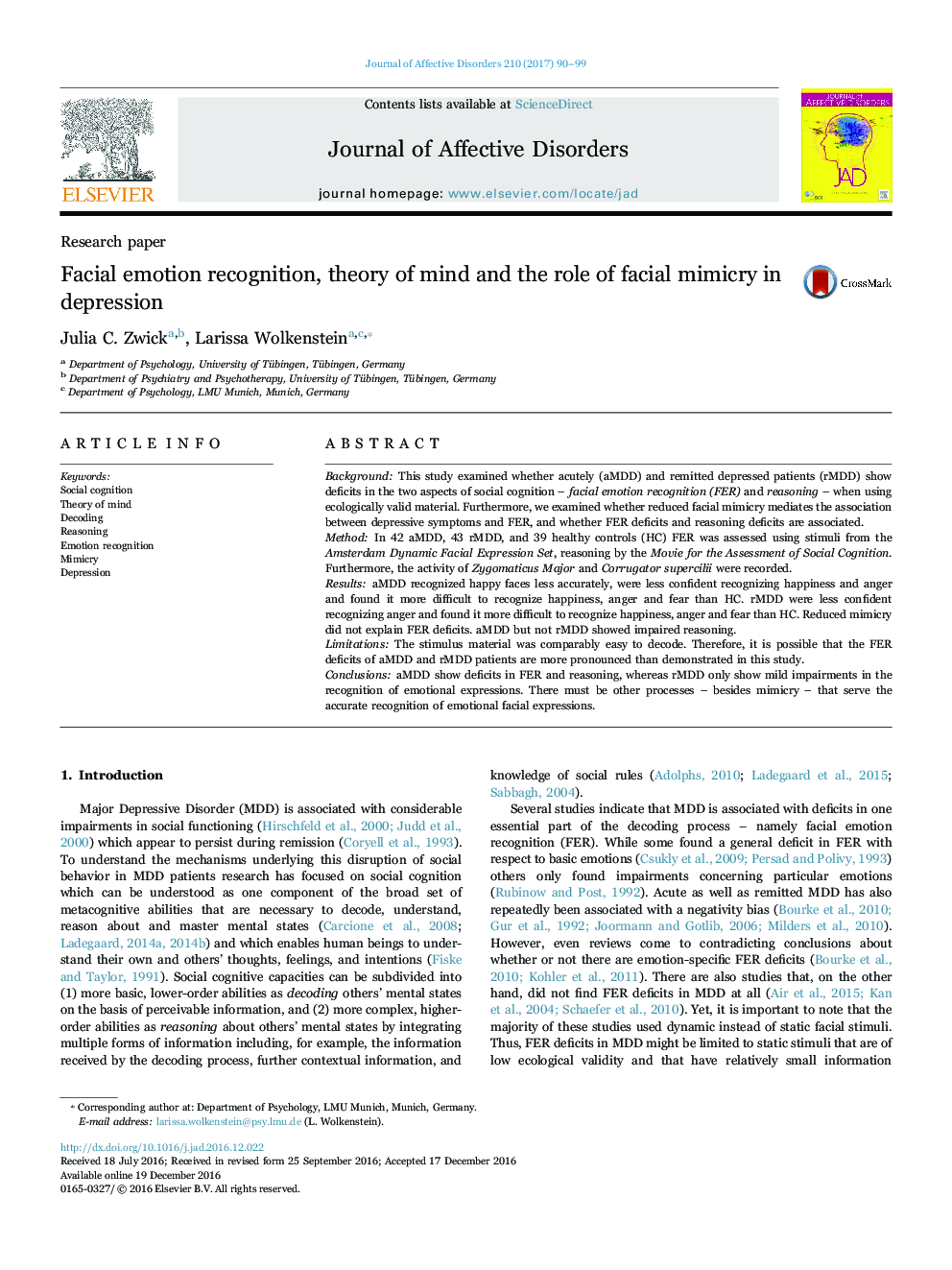| کد مقاله | کد نشریه | سال انتشار | مقاله انگلیسی | نسخه تمام متن |
|---|---|---|---|---|
| 5722377 | 1608115 | 2017 | 10 صفحه PDF | دانلود رایگان |
- aMDD and rMDD show deficits in decoding dynamic facial expressions.
- These deficits concern accuracy but also confidence and simplicity ratings.
- Confidence and simplicity ratings are particularly sensitive measures for decoding.
- Reduced mimicry in aMDD does not explain decoding deficits.
- While reasoning and decoding deficits are present in aMDD, they are not associated.
BackgroundThis study examined whether acutely (aMDD) and remitted depressed patients (rMDD) show deficits in the two aspects of social cognition - facial emotion recognition (FER) and reasoning - when using ecologically valid material. Furthermore, we examined whether reduced facial mimicry mediates the association between depressive symptoms and FER, and whether FER deficits and reasoning deficits are associated.MethodIn 42 aMDD, 43 rMDD, and 39 healthy controls (HC) FER was assessed using stimuli from the Amsterdam Dynamic Facial Expression Set, reasoning by the Movie for the Assessment of Social Cognition. Furthermore, the activity of Zygomaticus Major and Corrugator supercilii were recorded.ResultsaMDD recognized happy faces less accurately, were less confident recognizing happiness and anger and found it more difficult to recognize happiness, anger and fear than HC. rMDD were less confident recognizing anger and found it more difficult to recognize happiness, anger and fear than HC. Reduced mimicry did not explain FER deficits. aMDD but not rMDD showed impaired reasoning.LimitationsThe stimulus material was comparably easy to decode. Therefore, it is possible that the FER deficits of aMDD and rMDD patients are more pronounced than demonstrated in this study.ConclusionsaMDD show deficits in FER and reasoning, whereas rMDD only show mild impairments in the recognition of emotional expressions. There must be other processes - besides mimicry - that serve the accurate recognition of emotional facial expressions.
Journal: Journal of Affective Disorders - Volume 210, 1 March 2017, Pages 90-99
